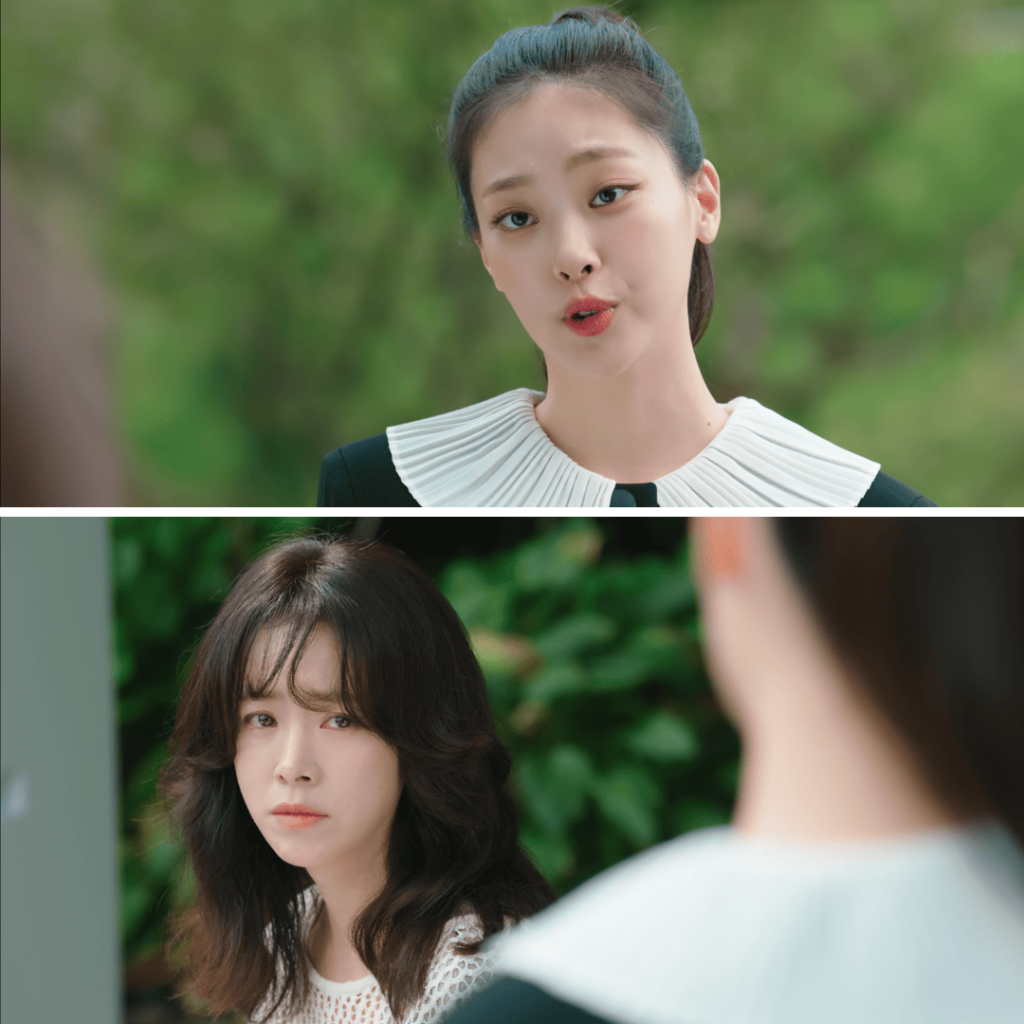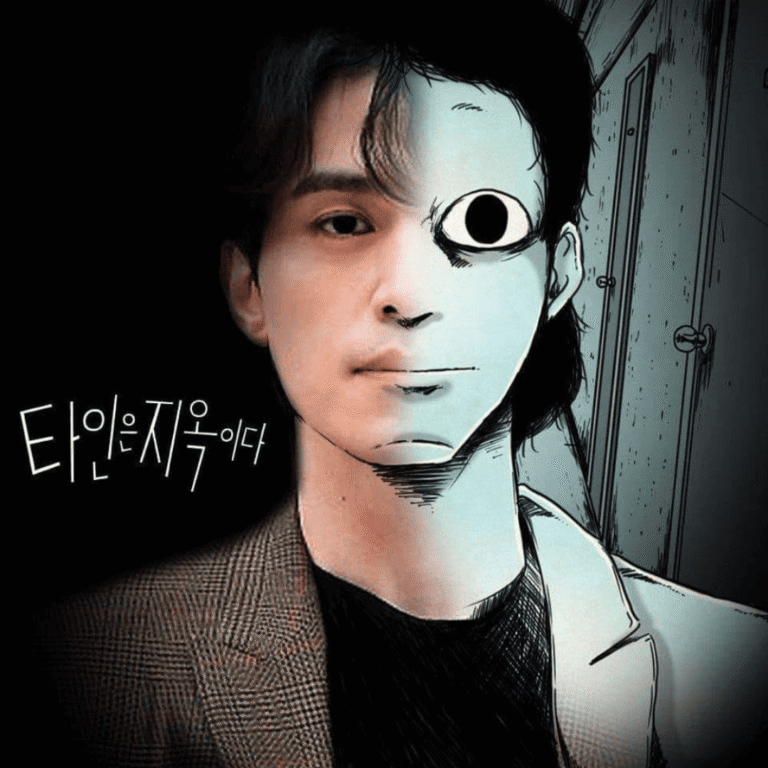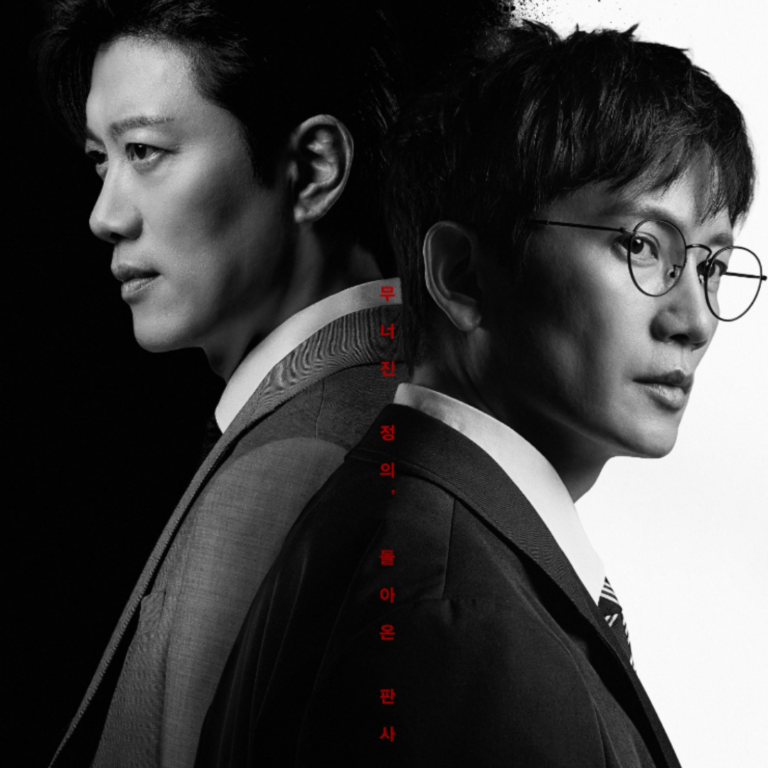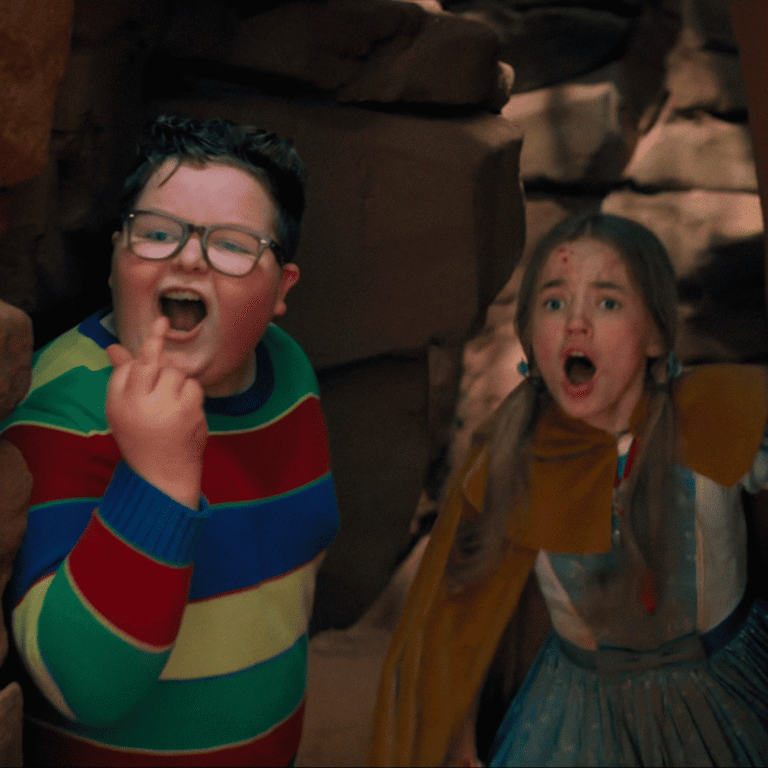Heavenly Ever After Review: Is it Even Worth Watching? Grief, Karma & Closure Explored

Spoiler Warning: This Heavenly Ever After Review discusses the key plot developments through episodes 11 and 12 of Heavenly Ever After.
When Heavenly Ever After began, it wore the robes of a light-hearted celestial comedy, quirky office culture in the afterlife, lotto dreams, and reincarnation gags. But by episode 11, it unzipped its uniform and revealed a raw, aching heart underneath.

Episode 11: Grief, Memory, and a Haunting Reveal
The penultimate episode is where this drama truly earned its wings. In a devastating unraveling of memory, we learn that Haeseok – cheerful, sweet, seemingly the most well-adjusted of the heavenly residents had lost her son Eun-ho, who is now, unknowingly to her, the gentle pastor in heaven.
Her trauma was so deeply buried that she had forgotten him entirely, creating an emotional phantom named Som-i to carry her grief.
The moment she remembers the toy police car, the church, and her son’s disappearance after telling him she would leave him alone is one of the most gut-wrenching revelations I’ve seen in a while.

The fact that Eun-ho did exactly what she told him, waiting at the church only to be scared away by a dog, and later trafficked by a corrupt cop who was being paid by her husband Nakjoon to “search” for the boy… it’s cruel, tragic, and brilliantly written.
Episode 11 pulled it all together with such emotional clarity that it made me question why we even needed a 12th episode.

A Series of Emotional Highs and Side Quest Detours
The finale episode reintroduced side plots that felt tonally out of sync. Young Ae’s lottery dream arc, her brush with death via a con-artist shaman, and a budding romance were sweet, but unnecessary.
So were the pet revenge plotlines and the territory switcheroo between King Yeomra and the Heaven Center Director. These bits diluted what could have been a pristine resolution if the focus had stayed with Nakjoon, Haeseok, and Eun-ho.

Thematically, the series wrestled with loss, guilt, karmic debt, and redemption. It took Buddhist ideas of reincarnation and karma and merged them with Westernized visions of heaven and hell in a way that might confuse some viewers unfamiliar with Korean cosmology.
But for those attuned to that blend, it had deep emotional resonance. The notion that thinking of a deceased loved one sends them “mail” or even food in heaven was particularly moving – and the running metaphor that “heaven is a check-in, not a final destination” offered a surprisingly hopeful outlook.

Would You Recommend Heavenly Ever After?
By the end, Heavenly Ever After was more spiritual than cynical. It never preached, but it did invite reflection on how we process grief, remember the dead, and carry karma. Haeseok’s arc was the show’s most powerful transformation: her warm demeanor slowly peeling away to reveal decades of repressed pain. And Som-i, the emotional echo of that grief, stole episode 11 with a performance that was tender, haunted, and unforgettable.
Its lighter moments, aging up to 80 in heaven because your partner thought you were most beautiful then were charming, even as the show asked us to contemplate reincarnation’s emotional toll.
Still, I don’t think I’d rewatch it. And I’d hesitate to recommend it unless someone’s already a few episodes in. The pacing often dragged, and several plotlines felt like filler distracting from the emotional core.
But episode 11? That was masterful television. That was why we watch these stories.

Final Thoughts: Will This Drama Be Remembered?
Heavenly Ever After may not become a classic. It’s not that deep, and its pacing flaws may see it fade into the sea of quirky K-dramas with existential premises. But for anyone who’s ever grieved, episode 11 will leave a lasting mark.
It did for me.
If you’re in the mood for more K-dramas that balance grief, healing, and a touch of the surreal, check out Light Shop on Disney+ or our full review of When Life Gives You Tangerines, two dramas that also ask what it means to move on without letting go.
Disclaimer: This blog is for informational and entertainment purposes only. All copyrights and trademarks for the TV shows, films, and other media referenced are the property of their respective owners. This blog aims to provide original commentary and insights and claims no ownership over third-party content.







